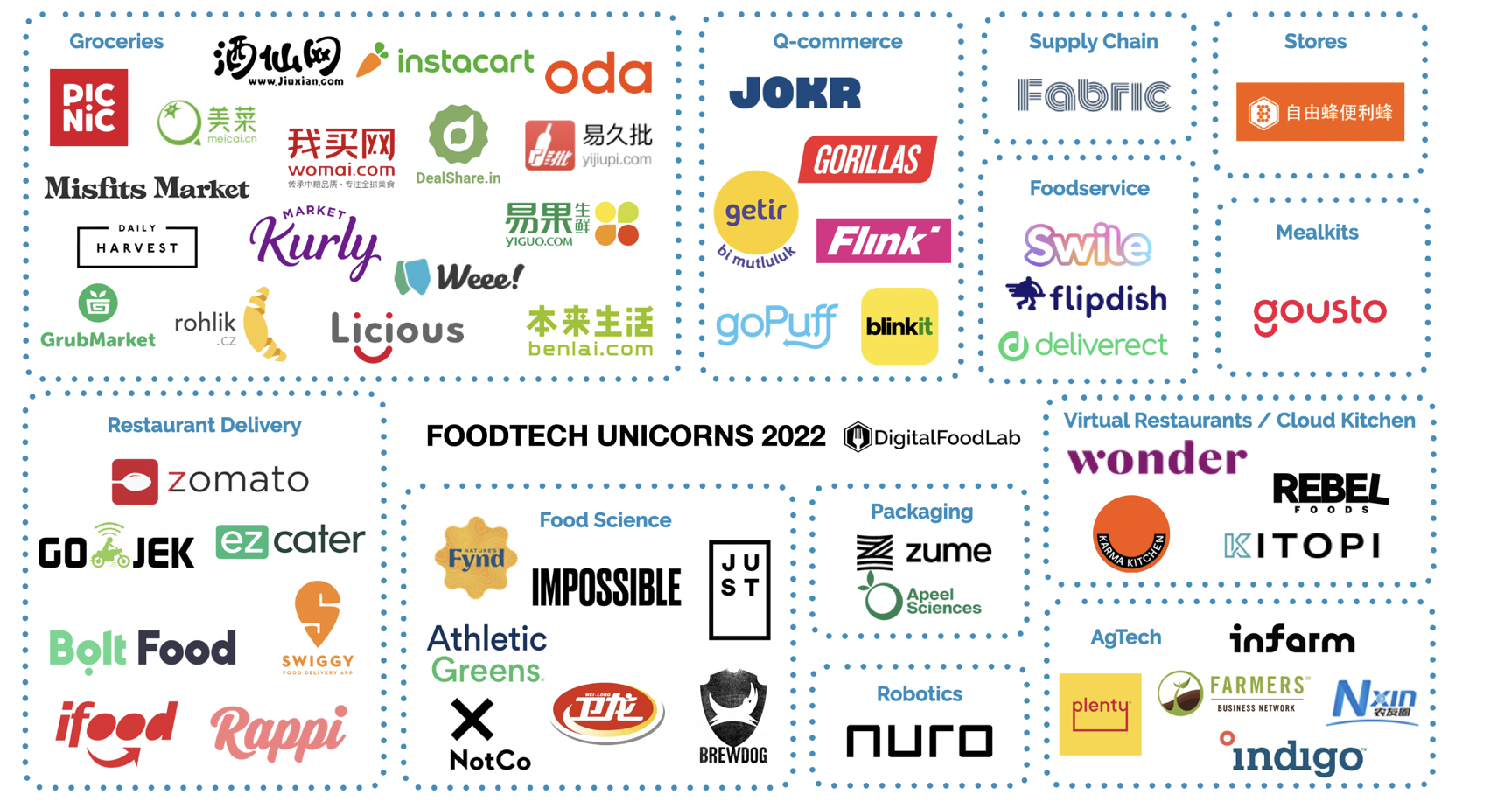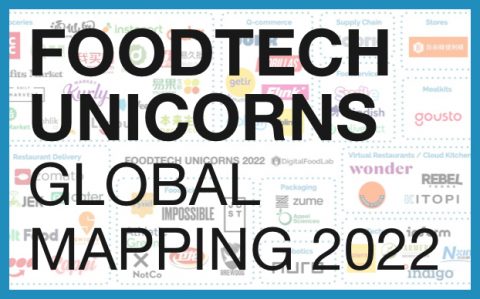55 FoodTech unicorns, half of them reached the $1B valuation in 2021
This is the fourth year that we map FoodTech unicorns. As this year breaks all the records in terms of the number of startups going over the symbolic valuation of $1B, we decided to dedicate a full report to this very specific set of startups.
Indeed, if most entrepreneurs want to create “billion-dollar companies”, how many reach that goal in FoodTech? At least, we can provide a quick answer to this: there are currently 55 FoodTech unicorns. For DigitalFoodLab, a unicorn is a startup that has reached a $1B valuation while still being private (then, all the startups that have been either acquired or went to the public markets are excluded).
58% of all the FoodTech unicorns are working around food delivery. This is 9% less than last year. After years of hype, we observe the emergence of a handful of alternative proteins and urban farming unicorns. However, the most impressive set of new food unicorns is made of quick-commerce startups. These companies went from idea to unicorn at breathtaking speed. Even with these new players, the average « speed » at which a startup becomes a unicorn has not changed and remains at 6 years.

23 new unicorns in 2021, probably twice as many in a few years
The consistency of speed at which startups become unicorns, combined with the acceleration of the number of new FoodTech startups and the amounts invested in the ecosystem, let us think that we can expect many more unicorns in the years to come.
Indeed, investments in the ecosystem more than doubled globally in 2021. We can then expect that from 23 new FoodTech unicorns in 2021, we will have at least 50 or more new unicorns per year in three to five years.
These skyrocketing valuations are a double-edged sword:
- On the positive side, startups have the means (through investments and the debt they can raise) to achieve their vision and to challenge the status quo. They can help the transition toward a newer, greener, more sustainable and healthier food system.
- Less favourably, this kind of valuation makes their acquisition by current agrifood businesses harder. This creates a tension where FoodTech unicorns have a narrow exit path: either the intransigent public markets (which have demonstrated with Beyond Meat and Oatly that they won’t accept anything less than stellar growth for companies with high valuations) or acquisitions by other deep-pocketed unicorns (Glovo, Wolt).

What is a unicorn?
A startup starts to be considered as a unicorn when it is still a private company and it publicly announces a new round of financing that makes its valuation go over « one billion » (we choose for convenience reasons to use dollars in this report).
A company can stop being a unicorn:
- following an acquisition (such as Wolt acquired by DoorDash);
- if it becomes a public company following an IPO (Initial Public Offering) and is then traded. Some companies have their valuation moving beyond the $1B mark on this occasion, but they are excluded from our scope as we focus on private companies;
- if it publicly announces a new round of financing with a valuation lower than $1B (which has never occurred, as some in this list may have raised money at valuations lower than $1B but never talked about it).
Get in Touch
We work with our clients to identify and act on the best Foodtech opportunities
By email
contact@digitalfoodlab.com
Our office
14 avenue de L’Opéra, 75001 Paris, France

